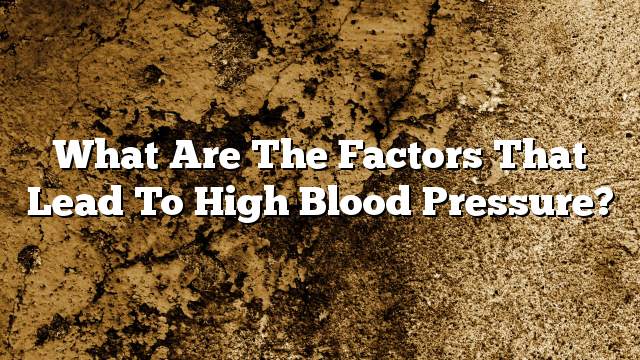Hypertension
High blood pressure is one of the most common heart diseases and its complications are serious and even known as silent killer, but what is high blood pressure? In order to know what high blood pressure is, we first need to know what blood pressure is and how it is measured.
Blood pressure is the measure of the force of the heart pumping blood through the walls of the arteries in the body, and is measured by an inflatable arm placed on the hand and a pressure gauge.
The blood pressure reading consists of two numbers:
- What is known as systolic pressure: a measure of pressure in the arteries at the moment the heart beats.
- Diastolic pressure: a measurement of blood pressure in the arteries between the chimes.
In normal conditions, blood pressure readings are 120/80 mm Hg, ie, systolic pressure = 120, and diastolic = 80. Hypertension is known to increase the patient’s blood pressure to a normal limit in a chronic way, requiring the heart to work very hard to equalize blood pressure Arteries.
Complications of high pressure on the body organs
High pressure is a chronic disease that leads to many complications if not controlled, and these complications affect the different parts of the body:
the heart
Your heart must work hard in the event of high blood pressure, which leads to enlarged heart muscles and heart failure over time, which increases the risk of angina and heart attack, and angina is the disease that occurs because of blood deficiency in the coronary arteries responsible for feeding Myocardial infarction is the death of a part of the heart tissue caused by the blockage of a coronary artery.
the brain
High blood pressure can lead to a stroke or stroke. Stroke is known as a brain stroke, which causes the brain to lose oxygen and nutrients and thus damage the part of the brain. High blood pressure The increased pressure on the blood vessels and their explosion thus causing bleeding in the brain, both stroke and bleeding may cause permanent loss of speech and perception and may cause partial or total paralysis, and may lead to coma and death.
Eyes, blood vessels and kidneys
- Eyes: May lead to bleeding in the eye followed by progressive loss of vision and blindness.
- Blood vessels: The continued high blood pressure leads to the deposition of fat on the wall of blood vessels and narrowed gradually and weaken the flow of blood in them causing atherosclerosis.
- Kidneys: High blood pressure leads to a decrease in blood flow to the kidneys and a decrease in kidney function, leading to kidney failure.
Anurisma
The blood pressure works to weaken the walls of the blood vessel and make it expand, and this leads to the formation of bulges resembling the balloon in the wall of the artery and these balloons are called Anorsma, and the risk of Anorsma cause the bleeding as it can be explosive when the pressure increases blood pressure and increase the walls of bulges Explosion.
Prevention of hypertension symptoms
As a patient with high blood pressure you can reduce the likelihood of getting these complications by following some simple rules in your life such as:
- Refrain from smoking and drinking alcohol
- Exercise regularly
- Regularly regulate and monitor blood pressure
- Regularity of medication and adherence to doctor’s advice
- A diet containing useful nutrients has few salts and fat
- Reduce excess weight
